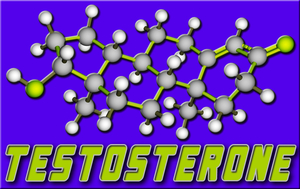Introduction
Premature ejaculation (PE) is a common sexual dysfunction that affects a significant portion of American males, leading to distress and impacting quality of life. The management of PE is multifaceted, involving medical, psychological, and behavioral interventions. Sexual health clinics play a pivotal role in this management, offering specialized care and resources. This article explores the accessibility and effectiveness of sexual health clinics in managing PE among American males, shedding light on the current landscape and future directions.
The Prevalence of Premature Ejaculation
Premature ejaculation is defined as ejaculation that occurs sooner than desired, either before or shortly after penetration, causing distress or interpersonal difficulty. Studies suggest that PE affects approximately 20-30% of American men, making it one of the most prevalent sexual dysfunctions. The condition can be lifelong or acquired, and its impact on mental health and relationships is profound, often leading to decreased self-esteem and relationship strain.
Access to Sexual Health Clinics
Access to specialized sexual health clinics is crucial for effective management of PE. These clinics offer a range of services, including diagnosis, counseling, and treatment options tailored to individual needs. However, access can be limited by several factors, including geographic location, insurance coverage, and awareness of available services. In urban areas, sexual health clinics are more readily available, whereas rural regions may lack such specialized facilities, creating disparities in care.
Effectiveness of Sexual Health Clinics in Managing PE
Sexual health clinics are equipped with professionals trained in sexual medicine, including urologists, psychologists, and sex therapists. The effectiveness of these clinics in managing PE lies in their holistic approach, which often includes a combination of pharmacological treatments, such as selective serotonin reuptake inhibitors (SSRIs), and behavioral therapies, like the stop-start technique and the squeeze method. Additionally, clinics provide a safe space for patients to discuss their concerns and receive personalized care plans.
Case Studies and Clinical Outcomes
Several studies have demonstrated the positive impact of sexual health clinics on PE management. For instance, a study conducted at a major sexual health clinic in New York found that patients who received a combination of pharmacological and behavioral therapy reported significant improvements in ejaculation latency time and overall sexual satisfaction. Similarly, a clinic in Los Angeles reported high patient satisfaction rates, with many patients noting improved self-confidence and relationship dynamics following treatment.
Challenges and Opportunities
Despite the effectiveness of sexual health clinics, challenges remain. Stigma surrounding sexual health issues can deter men from seeking help, and the cost of treatment can be prohibitive for some. Moreover, the need for more research into novel treatments and better integration of sexual health services into primary care settings is evident. Opportunities for improvement include increasing public awareness, expanding insurance coverage for sexual health services, and enhancing telehealth options to reach more patients.
Future Directions
The future of PE management in sexual health clinics looks promising, with ongoing research into new pharmacological agents and behavioral techniques. There is also a growing emphasis on patient education and empowerment, encouraging men to take an active role in their sexual health. Collaborative efforts between healthcare providers, policymakers, and community organizations are essential to enhance access and improve outcomes for American males suffering from PE.
Conclusion
Sexual health clinics play a critical role in the management of premature ejaculation among American males, offering accessible and effective care. While challenges such as stigma and cost remain, the potential for improved outcomes through continued research and policy changes is significant. By addressing these issues, we can enhance the quality of life for countless men and their partners, fostering healthier and more fulfilling relationships.
Contact Us Today For A Free Consultation

- Mastering the Clock: Hormonal Influences on Ejaculatory Timing and Premature Ejaculation in American Males [Last Updated On: February 18th, 2025] [Originally Added On: February 18th, 2025]
- Understanding Premature Ejaculation: Facts, Myths, and Effective Treatments for American Men [Last Updated On: February 24th, 2025] [Originally Added On: February 24th, 2025]
- Decoding the Blink-and-Miss Syndrome: A Comprehensive Understanding of Premature Ejaculation [Last Updated On: February 25th, 2025] [Originally Added On: February 25th, 2025]
- Exploring the Enigma: Unraveling the Science Behind Premature Ejaculation [Last Updated On: February 26th, 2025] [Originally Added On: February 26th, 2025]
- Delineating Triggers: Understanding the Mechanisms Behind Premature Ejaculation [Last Updated On: February 27th, 2025] [Originally Added On: February 27th, 2025]
- Unplumbed Depths: The Psychological Underpinnings of Premature Ejaculation [Last Updated On: February 28th, 2025] [Originally Added On: February 28th, 2025]
- Mastering the Art of Endurance: Sustainable Strategies for Delayed Ejaculation [Last Updated On: February 28th, 2025] [Originally Added On: February 28th, 2025]
- Decoding the Dynamics: Understanding Premature Ejaculation Beyond Stereotypes [Last Updated On: March 1st, 2025] [Originally Added On: March 1st, 2025]
- The Incessant Walk in the Dark: Understanding Premature Ejaculation [Last Updated On: March 2nd, 2025] [Originally Added On: March 2nd, 2025]
- Exploring Premature Ejaculation: Causes, Impacts, and Management Strategies for Improved Sexual Health [Last Updated On: March 3rd, 2025] [Originally Added On: March 3rd, 2025]
- Unraveling the Mystery: A Comprehensive Look at Premature Ejaculation in American Men [Last Updated On: March 4th, 2025] [Originally Added On: March 4th, 2025]
- Understanding Premature Ejaculation: Impacts and Treatment Options [Last Updated On: March 4th, 2025] [Originally Added On: March 4th, 2025]
- Understanding and Managing Premature Ejaculation: Causes, Impacts, and Treatment Options [Last Updated On: March 5th, 2025] [Originally Added On: March 5th, 2025]
- Understanding and Managing Delayed Ejaculation: Causes and Behavioral Strategies [Last Updated On: March 6th, 2025] [Originally Added On: March 6th, 2025]
- The Psychological Impact of Performance Anxiety on Premature Ejaculation: Strategies for Management [Last Updated On: March 7th, 2025] [Originally Added On: March 7th, 2025]
- Comprehensive Guide to Understanding and Managing Premature Ejaculation: Causes, Diagnosis, and Treatment [Last Updated On: March 8th, 2025] [Originally Added On: March 8th, 2025]
- Natural Remedies for Premature Ejaculation: Techniques, Exercises, and Herbal Solutions Explored [Last Updated On: March 9th, 2025] [Originally Added On: March 9th, 2025]
- Exploring the Dual Impact of Erectile Dysfunction Medications on Premature Ejaculation: A Comprehensive Analysis [Last Updated On: March 12th, 2025] [Originally Added On: March 12th, 2025]
- Mastering the Art of Ejaculatory Control: Techniques for American Males [Last Updated On: March 13th, 2025] [Originally Added On: March 13th, 2025]
- Mindfulness Mastery: Enhancing Sexual Endurance and Overcoming Premature Ejaculation [Last Updated On: March 15th, 2025] [Originally Added On: March 15th, 2025]
- Managing Premature Ejaculation in Casual Dating: Strategies for American Males [Last Updated On: March 18th, 2025] [Originally Added On: March 18th, 2025]
- Anxiety's Role in Fueling Premature Ejaculation Among American Men: Causes and Treatments [Last Updated On: March 18th, 2025] [Originally Added On: March 18th, 2025]
- Lifestyle Changes to Manage Premature Ejaculation in American Males [Last Updated On: March 18th, 2025] [Originally Added On: March 18th, 2025]
- Managing Premature Ejaculation: Communication, Treatment, and Therapy for Couples [Last Updated On: March 18th, 2025] [Originally Added On: March 18th, 2025]
- Understanding and Treating Premature Ejaculation: A Comprehensive Guide [Last Updated On: March 19th, 2025] [Originally Added On: March 19th, 2025]
- Nervous System's Role in Ejaculation and Premature Ejaculation in American Males [Last Updated On: March 19th, 2025] [Originally Added On: March 19th, 2025]
- Countdown Challenge: Enhancing Ejaculatory Control in American Males [Last Updated On: March 19th, 2025] [Originally Added On: March 19th, 2025]
- Premature Ejaculation's Social Impact on American Men: Relationships, Self-Esteem, and Stigma [Last Updated On: March 20th, 2025] [Originally Added On: March 20th, 2025]
- Mastering Premature Ejaculation: Effective Techniques and the Power of Pause [Last Updated On: March 21st, 2025] [Originally Added On: March 21st, 2025]
- Psychological Strategies for Managing Premature Ejaculation in American Men [Last Updated On: March 21st, 2025] [Originally Added On: March 21st, 2025]
- Overcoming Premature Ejaculation: Holistic Strategies for Enhanced Intimacy and Control [Last Updated On: March 21st, 2025] [Originally Added On: March 21st, 2025]
- Premature Ejaculation: Emotional, Financial Impacts and Treatment Options for American Men [Last Updated On: March 21st, 2025] [Originally Added On: March 21st, 2025]
- Understanding and Managing Premature Ejaculation: Causes, Treatments, and Lifestyle Tips [Last Updated On: March 22nd, 2025] [Originally Added On: March 22nd, 2025]
- Mastering Premature Ejaculation: Comprehensive Strategies for American Males [Last Updated On: March 22nd, 2025] [Originally Added On: March 22nd, 2025]
- Innovative Strategies to Delay Ejaculation: Advances in Premature Ejaculation Research [Last Updated On: March 22nd, 2025] [Originally Added On: March 22nd, 2025]
- Dietary Strategies to Manage Premature Ejaculation: Key Foods and Practical Tips [Last Updated On: March 22nd, 2025] [Originally Added On: March 22nd, 2025]
- Managing Premature Ejaculation: Psychological, Pharmacological, and Behavioral Approaches [Last Updated On: March 22nd, 2025] [Originally Added On: March 22nd, 2025]
- Premature Ejaculation: Understanding, Treating, and Overcoming the Common Sexual Dysfunction [Last Updated On: March 23rd, 2025] [Originally Added On: March 23rd, 2025]
- Understanding Sexual Arousal and Managing Premature Ejaculation in American Men [Last Updated On: March 24th, 2025] [Originally Added On: March 24th, 2025]
- Exercise and Premature Ejaculation: Enhancing Sexual Health Through Physical Fitness [Last Updated On: March 24th, 2025] [Originally Added On: March 24th, 2025]
- Stress Reduction Strategies for Managing Premature Ejaculation in American Men [Last Updated On: March 24th, 2025] [Originally Added On: March 24th, 2025]
- Ejaculatory Control: Understanding and Managing Premature Ejaculation in American Men [Last Updated On: March 24th, 2025] [Originally Added On: March 24th, 2025]
- Restorative Sleep Enhances Sexual Stamina, Mitigates Premature Ejaculation in American Males [Last Updated On: March 24th, 2025] [Originally Added On: March 24th, 2025]
- Managing Premature Ejaculation Through Open Communication and Mutual Support [Last Updated On: March 24th, 2025] [Originally Added On: March 24th, 2025]
- Medications Impacting Ejaculatory Speed: Insights into PE Treatment Options [Last Updated On: March 24th, 2025] [Originally Added On: March 24th, 2025]
- Managing Premature Ejaculation: Innovative Digital Tools for American Men [Last Updated On: March 24th, 2025] [Originally Added On: March 24th, 2025]
- Managing Premature Ejaculation: Techniques and Holistic Approaches for American Men [Last Updated On: March 25th, 2025] [Originally Added On: March 25th, 2025]
- Managing Premature Ejaculation: Self-Help Resources and Techniques for American Men [Last Updated On: March 25th, 2025] [Originally Added On: March 25th, 2025]
- Managing Premature Ejaculation: Strategies for Men Across All Ages [Last Updated On: March 25th, 2025] [Originally Added On: March 25th, 2025]
- Managing Premature Ejaculation: One Man's Journey to Sexual Health and Confidence [Last Updated On: March 25th, 2025] [Originally Added On: March 25th, 2025]
- Mastering Foreplay to Manage Premature Ejaculation: Techniques and Strategies [Last Updated On: March 25th, 2025] [Originally Added On: March 25th, 2025]
- Behavioral Techniques for Managing Premature Ejaculation in American Men [Last Updated On: March 25th, 2025] [Originally Added On: March 25th, 2025]
- Overcoming Premature Ejaculation: Real-Life Success Stories and Effective Strategies [Last Updated On: March 25th, 2025] [Originally Added On: March 25th, 2025]
- Premature Ejaculation: Global Insights, Treatment Options, and Reducing Stigma in the U.S. [Last Updated On: March 25th, 2025] [Originally Added On: March 25th, 2025]
- Managing Premature Ejaculation: A Holistic Approach for American Males [Last Updated On: March 26th, 2025] [Originally Added On: March 26th, 2025]
- Understanding and Overcoming Premature Ejaculation: Breaking the Stigma [Last Updated On: March 26th, 2025] [Originally Added On: March 26th, 2025]
- Transforming Premature Ejaculation into Enhanced Intimacy and Emotional Connection [Last Updated On: March 26th, 2025] [Originally Added On: March 26th, 2025]
- Managing Premature Ejaculation: Psychological, Biological, and Strategic Approaches for American Men [Last Updated On: March 26th, 2025] [Originally Added On: March 26th, 2025]
- Understanding and Treating Premature Ejaculation: Biological and Psychological Approaches [Last Updated On: March 26th, 2025] [Originally Added On: March 26th, 2025]
- Biofeedback: A Non-Invasive Solution for Premature Ejaculation in American Men [Last Updated On: March 26th, 2025] [Originally Added On: March 26th, 2025]
- Managing Premature Ejaculation: Holistic Approaches Beyond Medication [Last Updated On: March 26th, 2025] [Originally Added On: March 26th, 2025]
- Herbal Remedies for Premature Ejaculation: Efficacy and Safety for American Men [Last Updated On: March 26th, 2025] [Originally Added On: March 26th, 2025]
- Enhancing Sexual Endurance: Techniques and Patience for Overcoming Premature Ejaculation [Last Updated On: March 26th, 2025] [Originally Added On: March 26th, 2025]
- CBT: A Holistic Approach to Managing Premature Ejaculation in American Males [Last Updated On: March 27th, 2025] [Originally Added On: March 27th, 2025]
- Understanding and Managing Premature Ejaculation in American Men: Causes and Strategies [Last Updated On: March 28th, 2025] [Originally Added On: March 28th, 2025]
- Effective Strategies to Combat Premature Ejaculation and Boost Sexual Stamina [Last Updated On: March 28th, 2025] [Originally Added On: March 28th, 2025]
- Couples Overcoming Premature Ejaculation: Strategies and Support for Enhanced Intimacy [Last Updated On: March 29th, 2025] [Originally Added On: March 29th, 2025]
- Exploring the Interplay of ED and PE in American Men: Impacts and Treatments [Last Updated On: March 29th, 2025] [Originally Added On: March 29th, 2025]
- Managing Premature Ejaculation: Holistic Strategies for American Men's Sexual Health [Last Updated On: March 29th, 2025] [Originally Added On: March 29th, 2025]
- Managing Premature Ejaculation: Techniques, Therapies, and Lifestyle Changes for American Men [Last Updated On: March 29th, 2025] [Originally Added On: March 29th, 2025]
- Premature Ejaculation: Causes, Diagnosis, and Effective Management Strategies [Last Updated On: March 30th, 2025] [Originally Added On: March 30th, 2025]
- Managing Premature Ejaculation: Treatments and Strategies for American Men [Last Updated On: March 30th, 2025] [Originally Added On: March 30th, 2025]
- New Treatments for Premature Ejaculation: Options for American Males [Last Updated On: April 2nd, 2025] [Originally Added On: April 2nd, 2025]
- Controlled Breathing: A Natural Solution for Premature Ejaculation in American Men [Last Updated On: April 4th, 2025] [Originally Added On: April 4th, 2025]
- Overcoming Premature Ejaculation: American Men's Journey to Sexual Health and Confidence [Last Updated On: April 4th, 2025] [Originally Added On: April 4th, 2025]
- Testosterone's Role in Ejaculatory Control and Premature Ejaculation in American Males [Last Updated On: April 6th, 2025] [Originally Added On: April 6th, 2025]
- Exploring Premature Ejaculation's Link to Prostate Health: Insights and Management [Last Updated On: April 6th, 2025] [Originally Added On: April 6th, 2025]
- Understanding and Managing Premature Ejaculation: Causes, Treatments, and Holistic Approaches [Last Updated On: April 7th, 2025] [Originally Added On: April 7th, 2025]
- Mastering Premature Ejaculation: Integrating Art, Science, and Therapy for American Men [Last Updated On: April 9th, 2025] [Originally Added On: April 9th, 2025]
- Strategies to Overcome Premature Ejaculation: A Holistic Approach for American Men [Last Updated On: April 9th, 2025] [Originally Added On: April 9th, 2025]
Word Count: 594




















